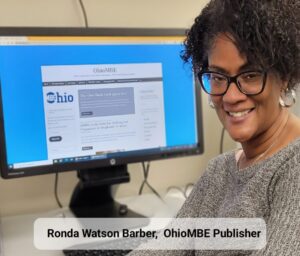
(D-Akron)
COLUMBUS— Minority Leader Emilia Strong Sykes (D-Akron) today announced the introduction of the Worker Protection Act, Democratic-sponsored legislation to protect at-risk workers from being forced to choose between returning to unsafe working conditions or losing unemployment benefits.
“It’s incumbent upon us as lawmakers to give voice to the concerns of Ohio workers. Democrats stand with workers, because when they are healthy, Ohio is healthy, and that’s true now more than ever in the face of this unprecedented crisis,” said Leader Sykes. “Ensuring workers have the options to protect themselves and their families during this time is the right thing to do. We can revive an economy, but we can’t revive people from the dead.”
The proposal is the latest effort from House Democrats to improve the safety and security of Ohio workers amid the COVID-19 pandemic. Other House Democratic bills to benefit workers include:
- HB 571 (Boggs) to make COVID-19 an occupational disease for first responders;
- HB 573 (Sobecki, Boggs) to make COVID-19 an occupational disease for individuals working outside the home during the declared emergency;
- HB 593 (Boyd, Boggs) expanding unemployment compensation and paid sick leave coverage during the emergency;
- HB 605 (Kelly, Patton) to give frontline workers access to workers’ compensation if they contract COVID-19 on the job;
- HB 633 (Boggs) making COVID-19 an occupational disease for workers in nursing homes, residential care facilities and health care facilities.
The Worker Protection Act would ensure that workers who are immunocompromised, over 65, or live with someone who is immunocompromised or over 65 can choose not to return to work outside of their home without losing access to unemployment benefits. It extends the same right to all workers in environments where employers have failed to follow the safety guidance issued by the CDC and the Ohio Department of Health during the pandemic.
The bill extends similar protections to people who will have difficulty returning to work because of childcare center closures, as well as those experiencing COVID-19 symptoms who are in the process of seeking a diagnosis.
Some states, like North Carolina, Colorado, and Texas, have already specified those at high risk of severe illness from COVID-19 will not be forced to choose between returning to work or losing access to unemployment benefits.
House Republicans have focused almost exclusively on business owners and executives in their push to reopen Ohio, hearing testimony from over 130 representatives of business and industry but limiting testimony from union leaders and workers. Similarly, the governor’s working groups excluded worker representation, hearing only from owners and executives.
Discover more from OhioMBE
Subscribe to get the latest posts sent to your email.
